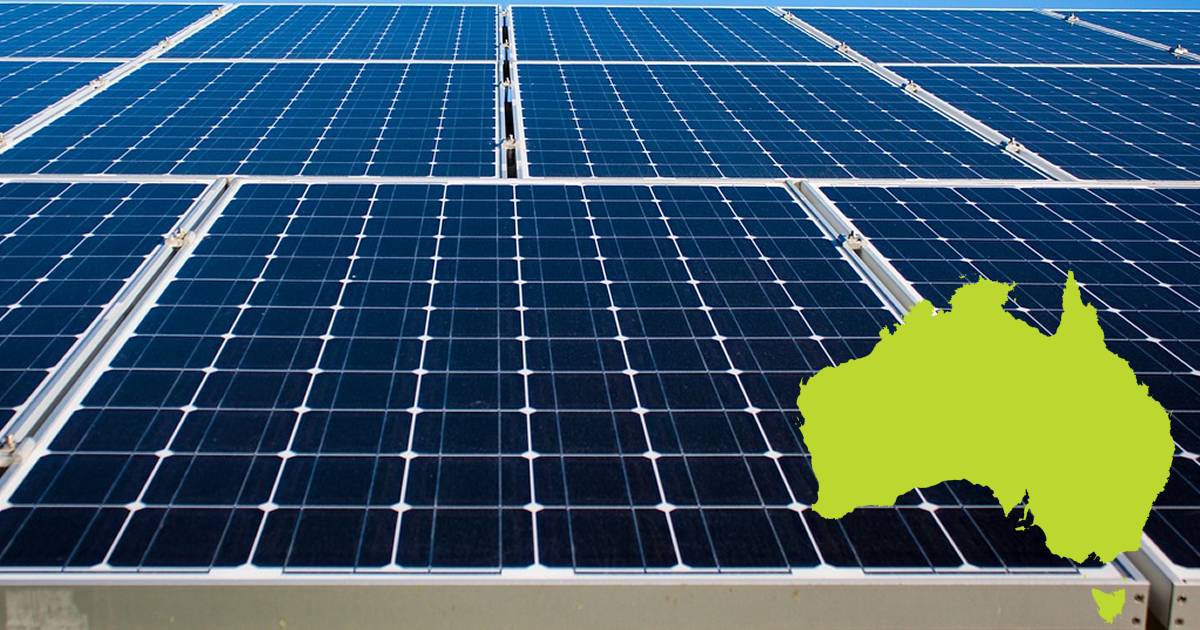
A company intending to produce solar panels is among the latest to have signed on to establish activities at Lansdown Eco-Industrial Precinct near Toowoomba.
Lansdown Eco-Industrial Precinct is described by Townsville City Council as Northern Australia’s first environmentally sustainable advanced manufacturing, technology and processing hub. Occupying 2200 hectares of land owned by Council, the Precinct is approximately 40 kilometres from Townsville.
Up to August this year, dibs had already been called on around 900 hectares of land for advanced battery manufacturing (Imperium3), clean energy (Edify Energy), and battery minerals processing (Queensland Pacific Metals) ventures. That month, Council put out a new call for tenders from potential proponents to establish themselves at the Precinct.
Last week, Council announced a new batch of companies putting their hand up for a place.
RTE Energy – Solar Panel Manufacturing
Among them is RTE Energy, which has proposed to build a solar panel manufacturing facility at Lansdown, which would be partly powered by a solar farm.
If you haven’t heard of RTE Energy before, you wouldn’t be alone.
Part of Melbourne-based RTE Group, RTE Energy’s PV technology is currently provided by partner EcoSolifer AG, a Swiss firm. Ecosolifer focuses on heterojunction technology (HJT) cells, which involves crystalline silicon cells with thin layers of amorphous thin-film silicon above and below them.
RTE shows a 144-cell panel range on its web site (but uses a 60-cell panel image for some reason) – basic specs include:
- Wattage range: 430W – 450W
- Size: 2063 x 1026 x 30mm
- Weight: 23.5kg
- Efficiency: 20.3% – 21.3%
- Temperature coefficient: -0.26%/°C
- Product warranty: 25 years
Temperature coefficient refers to how much a solar panel’s efficiency decreases for each degree the panel’s temperature (not ambient air temperature) is above 25 degrees. This is one of the areas where HJT technology struts its stuff: –0.26%/°C is really good1.
But another RTE page also makes reference to:
“the very latest perovskite material to coat our advances (sic) 3DCells”
.. and then it goes on to say the company intends to build a large-scale module assembly manufacturing facility in Australia capable of producing 860MW annual output of glass on glass bifacial modules. These panels, it says, will boast 28% efficiency and a 30-year product warranty.
Whatever it is going to produce featuring whatever technology, the intention is for construction of the factory to commence next year and construction of the solar farm to start in 2023. Manufacturing would begin in 2023 (assumed: initially to supply the solar farm with panels) and full production by March 2024.
SolarQuartz – Silicon Smelting
Another solar-related manufacturer wanting a chunk of Lansdown Eco-Industrial Precinct in this latest round is SolarQuartz.
I wasn’t able to find any useful information on this company, but according to Council the firm proposes to construct a solar silicon operation that would produce 52,000 tonnes of silicon “metal”2 per annum and 9,100 tonnes of silica fume (powder). Silica fume is by-product of producing silicon “metal” that can be used in concrete.
The first phase of the smelter’s construction is forecast to start in 2023, with phase two to commence in 2025.
Whether either the panel production or silicon smelting projects eventuate remains to be seen, but it would be great to see more (quality) solar panel manufacturing occurring in Australia.
Australian-Made Solar Panels You Can Buy Now
What also remains to be seen is if RTE Energy produces panels for the residential market – there seems to be a focus on large-scale and commercial applications.
If you don’t want to hang around to find out and are keen to buy Australian-made solar panels (and prepared to pay a bit more), Tindo Solar panels are well worth considering. Tindo isn’t the only “Australian-made” game in town for solar panels, but the only brand SolarQuotes currently recommends.
The company has ten years of production under its belt and is in the midst of firing up its new Tindo solar panel factory in Adelaide.
By the way, the next episode of SolarQuotes TV (due to be released in the next 24 hours) is all about solar manufacturing in Australia. Subscribe to SQ’s Youtube channel to be notified as soon as it’s live!
And on a related note, SolarQuotes’ Ronald recently wrote about why buying panels manufactured outside Australia still supports the Australian economy.
Footnotes
- Learn more – Pmax And NOCT: How Solar Panels Perform In The Heat. ↩
- Silicon is not a metal. It’s not a non-metal either. It’s considered a metalloid. ↩

 RSS - Posts
RSS - Posts



Speak Your Mind